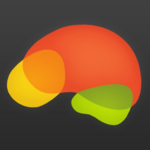Written By Katherine Swarts
3 minute read
Brain fog is a common symptom of traumatic brain injury (TBI), “long COVID,” and many other medical problems. Brain fog can also be temporary, triggered by any number of causes from food allergy to sleep deprivation; but the primary effect is always a decline in clear-headed thinking.
People experiencing brain fog frequently exhibit:
- Poor memory
- Difficulty concentrating, reasoning, or staying organized
- Inability to focus on anything for long
The best treatment is remedying the underlying cause. In some cases, a change in diet or sleep habits is adequate. However, if the problem is due to TBI, Alzheimer’s disease, COVID, or another major medical issue, recovery may take months of medically supervised care.
If you or someone in your family experience brain fog for more than a few days, consulting a doctor should always be your first action. Next steps include following the doctor’s instructions, practicing general good-health habits, and exercising your brain. One app that has helped “unfog” many brains is BrainHQ from Posit Science.

BrainHQ
The following paragraph is adapted from the official BridgingApps review:
BrainHQ is a brain-training app based on the principles of “brain plasticity,” designed to help stimulate the brain through a series of fun and interactive challenges. The courses are designed to target overall areas of interest, and the exercises are designed to target specific skills. One of the great features is that the science behind each activity, and the benefits, is clearly explained in its description.
Research studies have found the BrainHQ app to be a factor in significant improvement of many brain functions:
- Memory
- Ability to pay attention
- Executive functions such as self-control, planning ability, and appropriate responses to the unexpected
- Improved whole-brain function, with or without immediate external activities to stimulate it
Other Ways to Clear Brain Fog
Of course, even the best app can’t promise a quick cure for brain fog without the help of larger-scale work on the user’s part. General safety precautions substantially reduce the risk of illness or injury, and thus of developing brain fog in the first place. Other things you can do if at risk for brain fog or already experiencing it:
- If you suffer a blow to the head, see a doctor even if it doesn’t feel serious. This goes double if you lose consciousness (however briefly), if you subsequently experience headaches or vision problems, or if others say you’re acting “differently” after a head injury.
- If you’re treated for a concussion or TBI, help yourself recover by getting extra rest and by taking a few weeks’ break from intense physical activity (including household chores that require heavy lifting). Be careful also about rushing back into intense mental activity. (See also the CDC booklet, “Facts about Concussion and Brain Injury.”)
- Practice brain-training exercises, but don’t inflict unnecessary ones: reduce strain on your brain by keeping written notes of things you need to remember. Then store these reminders in the most obvious place available!
- To further reduce chances of forgetting, build rituals and routines into everyday life.
- When you need to improve your cognitive skills for daily tasks, make time to practice those tasks directly. If you use a brain-training app to the exclusion of other important activities, your brain may learn to be more effective only when using the app.
- Make positive attitude a top priority. Believing in yourself, expecting the best, and practicing gratitude cultivates a mindset that makes it easier to improve all other cognitive skills.
Recommended reading for the scientifically inclined:
- “The effects of neuroplasticity-based auditory information processing remediation in adults with chronic traumatic brain injury.” (NeuroRehabilitation, 09/24/2021)
- “The effects of plasticity-based cognitive rehabilitation on resting-state functional connectivity in chronic traumatic brain injury: A pilot study.” (NeuroRehabilitation, 04/02/2022)
- “A randomized clinical trial of plasticity-based cognitive training in mild traumatic brain injury.” (Brain, 07/27/2021)

